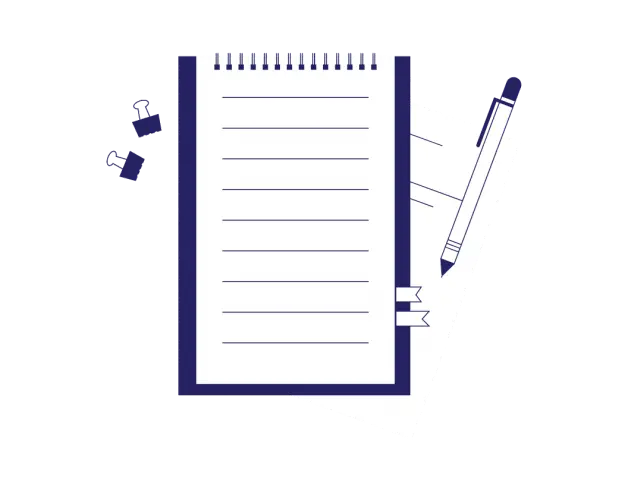
- 4-minute read
- 13th September 2022
How to Write in Plain English (With Examples)
Plain English refers to expressing your message to your intended audience clearly and concisely. This involves avoiding unnecessary jargon and using shorter sentences with everyday language so that your reader understands your message the first time they read it.
Whether you’re a professional writing website content that promotes a technical product or a teacher writing a syllabus for English as a second language students, using plain English is helpful. Check out our guide below to learn how to write more effectively.
Writing to Your Audience
First and foremost, it’s important to understand who you’re writing to so that the language you use is the most effective for that audience. Think about the information you’re sharing, and then use words that will best convey that message to your specific audience.
1. Avoid Jargon
Imagine that you’re trying to sell a medication to the general public rather than a pharmaceutical company. You would avoid using technical jargon (i.e., words or phrases only understood by people working in that industry) so that you don’t alienate your customers:
Complex: We examined the post-operative efficacy of our analgesics on sutures.
Plain English: We studied how well our painkillers worked on stitches after surgery.
If you must use some jargon, clearly define it the first time it appears in your writing.
For example, if you’re a blog writer creating a post for beginners on how to start a blog, be sure to define subject-specific acronyms or abbreviations before using them:
Complex: Learning about SEO is important to making your website visible.
Plain English: Learning about search engine optimization (SEO) is important to making your website visible.
2. Use Personal Pronouns
Using personal pronouns (e.g., we and you) will establish a more conversational tone to keep your reader engaged:
Complex: Students will be assessed at the end of the term.
Plain English: We will assess your work at the end of the term.
You can also switch your sentences from passive to active voice, which ensures that there is no ambiguity about who is doing what.
Word Choice
Avoiding passive words or phrases will make your writing easy to read and understand.
1. Avoid Nominalizations
Nominalizations are nouns formed from verbs:
argue → argument
complete → completion
decide → decision
evolve → evolution
fail → failure
intervene → intervention
Find this useful?
Subscribe to our newsletter and get writing tips from our editors straight to your inbox.
investigate → investigation
provide → provision
Using these nouns can result in overly wordy and confusing sentences:
Complex: An investigation was conducted, and the conclusion was reached that they were guilty.
Plain English: We investigated and concluded that they were guilty.
2. Use Imperatives
Using more direct language such as imperatives (i.e., commands) can also make your writing more concise:
Complex: Students should submit their assignments by 8:00 p.m. on the due date.
Plain English: Submit your assignments by 8:00 p.m. on the due date.
Imperatives can also prevent ambiguity. In the above example, using a command rather than “should” lets the reader know that submission by the given deadline is essential, not optional.
Sentence Length
The length of your sentences is just as important as their structure and content. Shorter sentences – on average, between 15–20 words – are far easier for readers to comprehend.
You can achieve this by covering one main idea in each sentence and avoiding formal phrases that have single-word synonyms:
in order to → to
pursuant to → under
in conjunction with → with
a number of → several or many
as a consequence of → because
at a later date → later or soon
until such time as → until
with reference to → about
However, writing with too many sentences of the same length or structure can be monotonous for your reader, so be sure to use simple, short sentences that vary in type and structure.
Proofreading and Editing
Using professional editing services is a great way to check that your writing is not only error free but also clear and concise. We have expert editors who will improve your writing on any subject matter and provide specific suggestions to make your writing easier to read. Upload a free trial document today to learn more.




